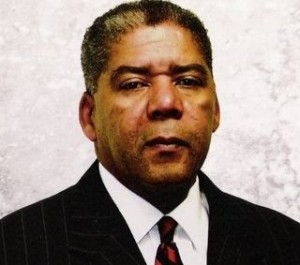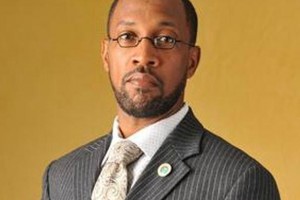
Joe Gaskins, co-chair of the Maryland Business-Clergy Partnership
The Maryland Business-Clergy Partnership and The Prince George’s Contractors and Business Association held an Emergency Town Hall meeting and panel discussion. Participants leveled an extensive inventory of grievances, including systematic discrimination against African-American contractors by major developers. Most significant among the charges, were accusations by residents and business owners that County officials colluded with developers or failed to enforce agreed upon minority contracts and apprenticeships.
“They knew that when they put this community benefit agreement into place, it was not narrowly tailored,” Joe Gaskins, co-chair of the partnership told the AFRO. “If the agreement is not written properly by your leadership, then it becomes an African American free-for-all and every business is eliminated.”
Gaskins said the county executive should have done a study to determine what individuals were discriminated against within Prince George’s County.
More than a hundred concerned residents and business proprietors met at the Central Baptist Church in Temple Hills. They demand answers regarding a growing economic crisis caused by Black exclusion from several large scale revitalization projects and the consistent reneging of developers on agreed upon aspects of secured contracts. While emotions ran high, most anger was directed toward County officials.
Cedric Green, an electrical engineer, attended the meeting and assessed what he termed “detached leadership” among Prince George’s County officials as the underlying cause for growing economic instability. The penalty for not forcing elected officials to advocate on behalf of County residents, Green said, could be found in the number of middle-class Black homes in foreclosure.
“When we lose our ability to provide, we also lose our homes and schools. The penalty is our children going to prison because there are no jobs. The reality is that we should not be talking about sacrificial lambs. We’re not sacrificing anybody,” said Green.
Green noted that in the midst of an economic downturn for County business owners, Prince George’s County Executive Rushern L. Baker III (D) had unveiled perhaps the most economically crippling budget proposal many residents had seen in years. In addition to raising property tax rates for the first time in 35 years, the budget, if approved, would see the elimination of roughly 110 county government jobs and the 5-day furlough of all county employees.
A 1978 law (Tax Reform Initiative by Marylanders, or TRIM), requires the county secure voter approval for a raise in property tax, and the 15 percent proposed hike had many seeing red. The money, according the proposal, would fund schools, public safety, and the economic development from which some forum attendees felt excluded.
Marlboro resident Tiwatha Guillory said the proposed tax increase without the necessary vote from residents was just another way County officials seemed to ignore the wishes of their constituents. Whether it is the Wal-Mart planned for South Bowie, the noise pollution created in Fort Washington by development at National Harbor, or the lack of community benefits to the increased development in the County, Guillory said she is feeling more like a subject than a citizen.

Eugene W. Grant, mayor of Seat Pleasant in Prince George’s County
“When developers wanted to come into the County officials got young people, football players, everyone they could think of to come out to support it based on a promise to provide job training and actual jobs. It has not happened. I am angered because I believed I was voting for conscientious representatives who had my interests at heart,” Guillory said.
Eugene W. Grant, mayor of Seat Pleasant in Prince George’s County and one of only two officials on hand for the emergency meeting, told the AFRO that the forum “was an opportunity to expose the challenges within the elected leadership of PG County.”
“ was an opportunity to understand the power of elected leaders and their responsibility and their failures at their responsibilities to legitimately work on behalf of these contractors to ensure that they get contracts,” Grant said. “Once they get the contracts, they can hire their own people, and it begins this cyclical effect that undergirds the economic progress of our communities.”
Grant told the crowd that officials of the County speak often of it as the most affluent and educated Black community in the region, but openly neglect to establish an economic base for African Americans within it by refusing to support Black businesses in the face of developers.
“At some point we have to stop electing people from the plantation and begin electing people who are free, have free thought, are bold, and who will speak the truth. If you had the right type of officials in place, you would not need an emergency meeting; you’d have everything you need,” Grant said.
An impassioned Grant echoed sentiments of several speakers during the forum, including those of Maryland business owner Melvin Forbes that the crisis many citizens faced in securing business contracts came as a direct result of a lack of oversight among County leaders.
“We’ve purchased the bus, have allowed others to ride the bus, and somehow we have once again ended up on the back of the bus,” said Forbes. “We have to get to a point with our votes that we acknowledge that just because you’re my color don’t mean you’re my kind. Prince Georges County, we have got to stop electing people just because they look like us.”

